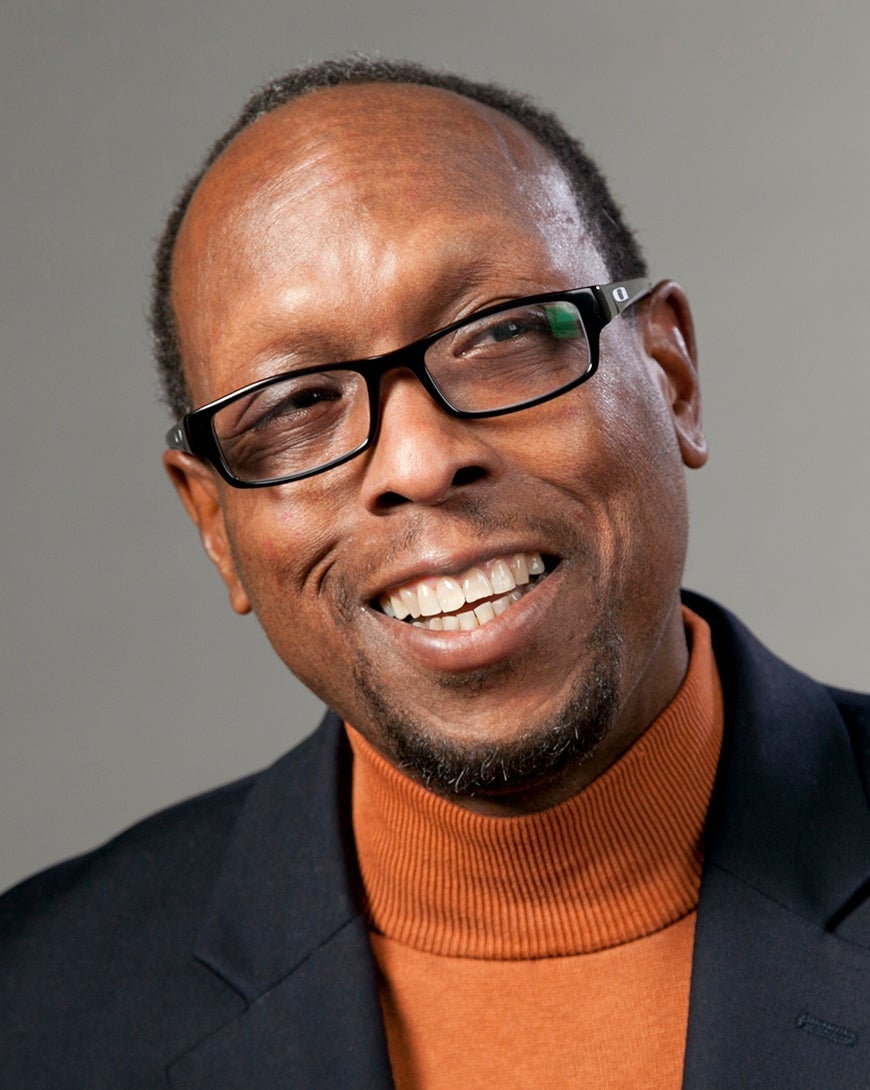How black feminism saved this Duke professor from himself
Mark Anthony Neal is a professor of African and African-American studies and chairs his department at Duke University. He’s taught classes about black performance and music, with a special focus on black masculinity.


Mark Anthony Neal is a professor of African and African-American studies and chairs his department at Duke University. He’s taught classes about black performance and music, with a special focus on black masculinity.
Neal is also focused on making black studies accessible beyond the confines of academia’s ivory tower. He hosts the weekly webcast Left of Black and is the founder and managing editor of the blog NewBlackMan (in exile), as well as an author of multiple books about black masculinity.
Neal, a self-identified feminist, has worked to dismantle assumptions about how higher education should work since arriving at Duke in 2014. He has questioned “whose history is worth studying; who should be called a student or a teacher; how much distance scholars must put between themselves and their subject matters; what type of language belongs both in essays and in the classroom,” according to a 2016 profile in Duke Magazine.
Neal’s feminism is deeply rooted in the model his mother set for him when he was growing up in the Bronx. Speaking with Quartz, Neal explains why he’s a byproduct of women’s critiques, and which black feminist literature has proven most influential in his life.
1. Did you actively think about workplace gender inequality prior to the Me Too movement? And what’s the most important lesson you’ve learned from Me Too?
I definitely thought about things like pay disparity and forms of retribution when women speak out about harassment; perhaps less about the more blatant examples of sexual assault and rape. It is that latter part that really resonates for me in the aftermath of #MeToo.
2. Do you identify as a feminist? Why or why not? How do you define your feminism?
My mother was a feminist, though she would have not called herself as such. Many of my graduate school advisors were feminist, including Masani Alexis De Veaux, who was the one who made me comfortable embracing feminist politics. As I write in New Black Man, much of my feminist perspective is guided by the idea that my two daughters could live in a world unfettered by the reality of sexism, misogyny, and patriarchy.
3. What do you do on a daily basis to advance gender equality?
On a daily basis I try to adhere to notions of gender equality in my interaction with women and girls. In my professional activities as a writer, in the classroom, and on social media, I try to present points of view that aren’t simply gestures to gender equality.
4. What’s the biggest threat to men in America today? Why?
I think the masculine toxicity that has been normalized, and even celebrated, is the biggest threat to men.
5. Do you talk about sexism with your male peers? If so, what strategies prove most effective, and if not, what inhibits you from doing so?
I do talk with my peers and younger black men about sexism and sexual violence. Such themes are foundational to the work I do in that classroom, where I often challenge my male students to think more progressively. I’ve said many times feminism—black feminism, specifically—saved me from myself.
6. What is your biggest anxiety about being a man?
When I was younger, my biggest anxiety lie in the fear of not being able to provide for my family in the very traditional way that my father did. These days it’s the fear of not really being able to thwart the realities of sexual violence and sexism or misogyny in the lives of the women in my life.
7. What do you wish your female co-workers, and women at large, knew about you?
That I’m an ally—supportive, open to critique—that I am in fact the byproduct of such critique.
8. Some men feel like they can’t win: They’ll be criticized by men for speaking up, and by feminists for not speaking loud enough. What would you tell these men?
I would tell men who feel between and betwixt that this is not a burden for them to bear or a burden that is somewhat insignificant to the larger goal; it comes with the territory.
9. If you could take back one thing you’ve said or done that contributed to bias at work or at home, what would it be? Why?
As an undergraduate student in the 1980s, I was among those group of men that were critical on the kinds of interventions made by Alice Walker in her book The Color Purple; [I] wished I had been exposed to black feminist literature earlier in my development. Eventually [I] found some of those books in my mother’s collection.
10. What’s the best advice you’ve received from another man, and what’s your best advice for young men today?
Best advice was from my dad, who by example, impressed upon me the importance of putting in a good day’s work. And my advice to young men? Get comfortable in your own skin and don’t feel compelled to fit into some box that society calls “real manhood.”